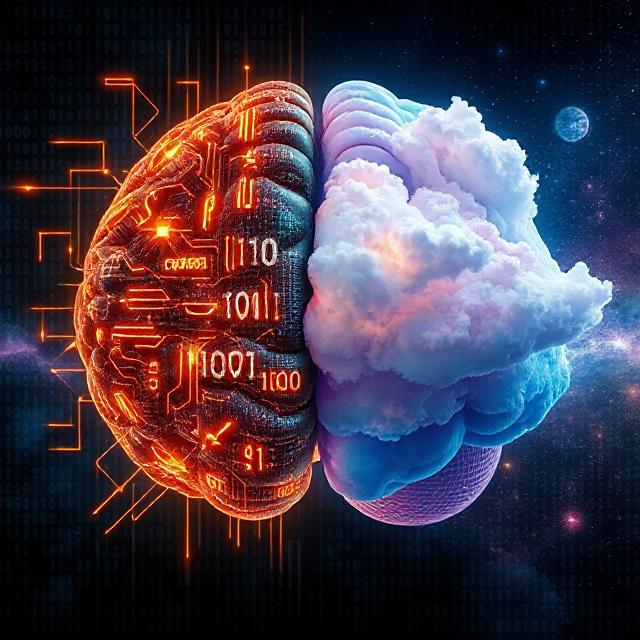
Table of Contents
Can Logic Explain Consciousness?
The question, “Can logic explain consciousness?” sits at the intersection of philosophy, cognitive science, and artificial intelligence. Logic—the rigorous system of reasoning and inference—has long been the backbone of scientific inquiry. Yet consciousness, the subjective experience of being aware and sentient, stubbornly resists reduction to logical formulas or algorithms.
If the mind is a logical machine, can all aspects of consciousness be explained purely by logic? Or does conscious experience, sometimes called qualia, elude the grasp of formal reasoning?
This article unpacks the philosophical debates, scientific approaches, and the conceptual challenges around whether logic alone can fully explain consciousness.
I. What Is Consciousness?
Before exploring logic’s role, it’s essential to understand what consciousness means.
- Phenomenal Consciousness: The raw experience of sensations—colors, sounds, feelings, thoughts—the “what it is like” aspect of mind.
- Access Consciousness: The ability to report, reason about, and use information in thinking and behavior.
- Self-Awareness: Awareness of oneself as a distinct entity with continuous identity over time.
Consciousness is a multifaceted phenomenon, combining subjective experience with cognitive functions. Understanding it requires bridging first-person experience and third-person scientific observation.
II. What Is Logic?
Logic is the formal study of valid reasoning. It uses symbols and rules to derive conclusions from premises:
- Classical Logic: The foundation of mathematics and computer science, involving propositions that are true or false.
- Modal Logic: Extends classical logic to possibility, necessity, and time.
- Non-Classical Logics: Includes fuzzy logic, intuitionistic logic, and others that relax classical assumptions.
Logic is powerful for structuring arguments, proving theorems, and modeling rational thought.
III. Logic as a Model of Mind
Many theories in cognitive science treat the mind as a computational system operating by logical rules:
- Computational Theory of Mind: Proposes mental states correspond to computational states; the brain processes information like a computer.
- Symbolic AI: Early artificial intelligence approaches modeled cognition as symbol manipulation governed by logical rules.
- Formal Reasoning: Humans often reason logically, apply deductive and inductive logic in decision-making.
If consciousness arises from information processing, can logical rules fully account for subjective experience?
IV. The Limits of Logic: The Hard Problem of Consciousness
Philosopher David Chalmers coined the phrase “the hard problem of consciousness” to distinguish explaining conscious experience from explaining brain function.
- Easy Problems: How does the brain integrate information? How do we report thoughts? These can be modeled logically and scientifically.
- Hard Problem: Why and how do physical processes give rise to subjective experience at all?
Logic excels at modeling objective processes but struggles with qualia—the felt quality of experience that cannot be fully captured by descriptions or algorithms.
V. Philosophical Arguments on Logic and Consciousness
1. Logical Positivism and Early AI Optimism
Early philosophers and AI researchers believed logic could eventually explain all cognition and consciousness.
- Turing machines and formal systems might replicate human thought.
- The mind as a “logical engine” could produce awareness.
2. Gödel’s Incompleteness Theorems
Kurt Gödel showed that any sufficiently powerful logical system is incomplete; there are truths it cannot prove.
- Philosopher Roger Penrose argues that human consciousness transcends computable logic.
- This suggests that logic-based AI might never replicate human consciousness fully.
3. Phenomenology and the Limits of Formalization
Philosophers like Edmund Husserl emphasized direct experience as irreducible to logic.
- Consciousness is lived and embodied, resisting purely abstract representation.
- Attempts to formalize experience risk missing its essence.
VI. Scientific and Computational Approaches
1. Neural Correlates and Logical Models
Neuroscience identifies brain processes correlated with conscious states. Some models use logic-based frameworks:
- Integrated Information Theory (IIT): Quantifies consciousness as integrated information, partly formalized logically.
- Global Workspace Theory: Describes consciousness as information globally accessible in the brain, modeled via computational architectures.
2. Limitations of Pure Logic
Biological brains operate with noisy, parallel, and non-symbolic processes.
- Connectionism: Neural networks learn patterns, not strictly logical rules.
- Embodied Cognition: Consciousness arises from the body interacting with the environment, beyond pure logic.
VII. Artificial Intelligence and Consciousness
Can logic-driven AI be conscious?
- Current AI operates on algorithms and logical operations.
- No AI to date demonstrates subjective experience or self-awareness.
- Some argue consciousness requires more than logic—emotions, embodiment, and evolutionary context.
VIII. Can Logic Explain Any Aspect of Consciousness?
While logic alone may not explain the entirety of consciousness, it contributes profoundly to:
- Modeling cognitive functions like reasoning, planning, and language.
- Formalizing aspects of decision-making and perception.
- Providing frameworks for understanding how conscious access to information occurs.
Logic is an essential but partial tool in the quest to understand consciousness.
IX. Conclusion: Logic and the Mystery of Consciousness
Can logic explain consciousness? The answer appears to be not completely. Logic illuminates many facets of cognition and underlies scientific inquiry. But the subjective, qualitative experience—the essence of consciousness—remains resistant to purely logical explanation.
Consciousness may require new paradigms integrating logic, biology, phenomenology, and perhaps something yet unknown. The mystery of mind endures, inviting us to expand the boundaries of logic and science.
